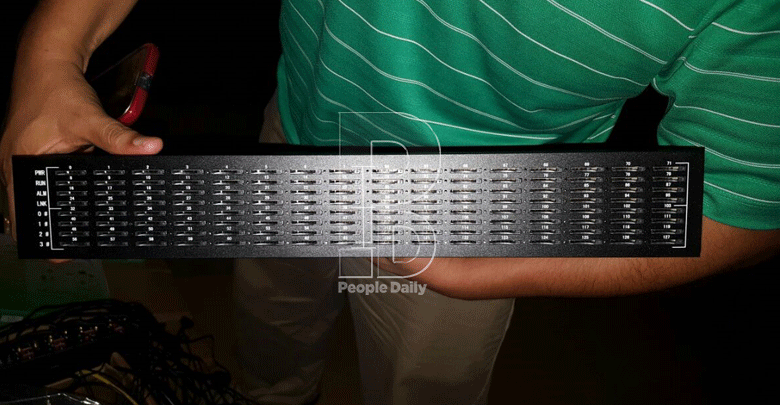Fraudsters defraud State, operators using SIM boxes
By Noel Wandera, May 17, 2021The government and mobile network operators (MNOs) are still losing revenue to digital repeaters and SIM boxing fraudsters.
Through SIM boxing which is a practice whereby a person or group of people set-up devices that can take up several SIM cards (a SIM box) which is used to complete international calls it receives from the Internet as voice over IP (VoIP). It then turns to serve them to the in-country mobile network subscribers as local traffic.
The SIM boxer bypasses international rates and often undercuts the prices charged by local mobile operators.
According to Communications Authority (CA) Manager, Telecommunications Compliance, Derick Khamali, fraudsters run such operations from Nairobi’s South B and C estates.
They also tried Karen, before their operations were disabled by the National Intelligence Service (NIS).
Speaking in Naivasha last week on the sidelines of a media workshop on the Universal Service Fund (USF) organised by the authority, Kamali warned that these group is causing a lot of interference and loses to operators and the government.
“What they do is they sale for you small reduction gadgets. The picocells are installed on rooftops or inside the houses so you find you are on a superior network but yet the people connected to the tower cannot be seen,” said Khamali.
Khamali noted that the repeater offers itself as a priority line, so that if the base station tower (BTS) was to offer say three sectors service, and a repeater interferes, all the power would be transferred to it until it is full before activating the genuine BTS.
Last year, DCI sleuths arrested five individuals with over 2,000 unregistered sim cards in Nairobi. This included 1,720 unregistered Safaricom lines, 429 Airtel lines, five handsets, and five laptops.
“The problem with mobile networks is that of time division. So if the time slots are gone, the other remains idle. So you find the repeaters render a tower useless for the intended plan, by taking over the responsibility of distribution,” said Khamala.
SIM boxing
He said the fraudsters convert international calls to local calls through SIM boxes, denying local MNOs and government revenues.
“You find that instead of maybe spending Sh100 per minute, you go ahead and spend Sh10, with the SIM box taking Sh90,” said Khamali.
The vice is perpetuated by insiders, especially for the SIM boxes, while for repeaters, they tend to be equipment suppliers, who in the event of installing the equipment, they deliberately divert the effort of the network providers to their personal accounts.
“The CA has partnered with the National Intelligence Service and the intelligence community. We have given them a monitoring room because they wanted to enforce this without us so they said we help them in monitoring, but let them do the enforcement,” said Khamali.
CA no longer approves the quality and functionality of the repeaters, but have partnered with the Customs department to ensure that when shipment arrives, it is not approved.
“This ensures that for instance when Safaricom imports, it must get clearance from CA and commits it will use them for the intended purpose,” said Khamali.
Thugs also blow up base transmission sites (BTSs) also steal the repeaters then go deploy them. The level of crime is growing because there is a commercial aspect to it,” said Khamali, adding: “When you blow a tower and deploy repeaters, they will start a small network and that small network is what will give them revenue.”
More Articles

